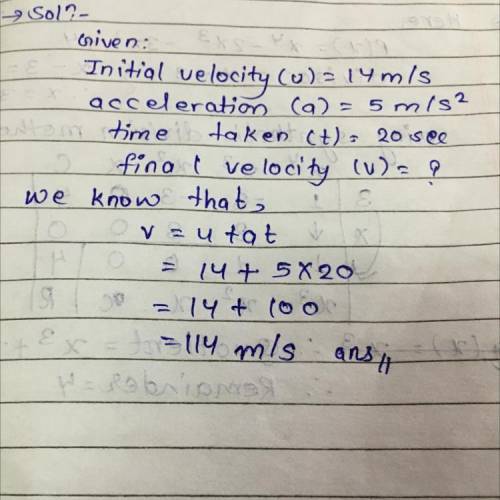
Physics, 29.07.2021 01:00 zeckwielen8205
An object moving north with an initial velocity of 14 m/s accelerates 5 m/s2 for 20 seconds. What is the final velocity of the object?
39 m/s
90 m/s
114 m/s
414 m/s

Answers: 3


Other questions on the subject: Physics

Physics, 22.06.2019 01:00, Mimix2k
15. give an example for some particles or waves that are moving faster than light in everyday life 16. what is a laser? 17. what is an oscilloscope? 18. what does it means practically that nothing is faster than light in vacuum? 19. what is vacuum?
Answers: 2

Physics, 22.06.2019 06:00, ayoismeisalex
Imagine that someone pushes one marble toward a motionless marble. would there still be action-reaction forces involved in the collision? how might the marbles’ motions be changed? ?
Answers: 1

Physics, 22.06.2019 15:50, sophie5064
Ryan is examining the energy of the particles in a bar of gold. what is ryan most likely studying?
Answers: 1

Physics, 22.06.2019 20:00, tasniahussain21
Anika asks eva to roll a basketball and then a bowling ball to her. which requires more force to roll, and why?
Answers: 3
You know the right answer?
An object moving north with an initial velocity of 14 m/s accelerates 5 m/s2 for 20 seconds. What is...
Questions in other subjects:













